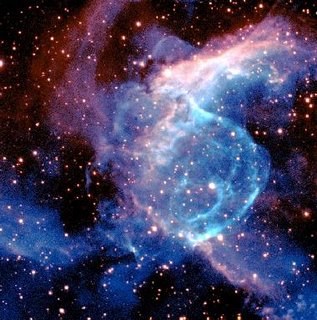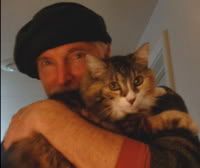An Infinity of Miracles

As I've written before, scientific inquiry can be a spiritual practice. After all, the two contain the common elements of inspiration, attention, and questioning.
Likewise, spiritual inquiry can be approached scientifically.
In The Marriage of Sense and Soul: Integrating Science and Religion, Ken Wilber suggests that we should approach the issue of spirit like we do any scientific inquiry, by applying “the three strands of valid knowledge” to the primary sphere of spiritual insight— the domain of contemplation and meditation. The three strands are (1) Injunction: Do the prescribed practice; engage in the appropriate experiment to elicit the knowledge; (2) Apprehension: Have the direct experience and collect the relevant data; and (3) Confirmation: Check the results with others who have also completed the first two strands.
But, of course, most people think they don’t have the time or the inclination to have a direct experience. Like the clerics that refused to look through Galileo’s telescope for fear of seeing something that might prove inconvenient, such people only have time to select the vestments of their beliefs off the racks of the second hand idea stores of the world. Fundamentalists flat out refuse to do the three strands of valid knowledge. That would be heresy. An open mind is a dangerous thing.
Wilbur suggests in his book that to have a direct experience of spirit one might execute the injunction of living in a Zen Buddhist ashram for six years. But if the seeker of the spiritual is like a fish looking for water at the bottom of the ocean, as the ancients say, direct experience must be closer at hand than a monastery in Kyoto.
In fact, the prescribed practice may be largely a matter of changing one’s perspective (granted often easier said than done). When asked “What is spirit?” my reply would be “What isn’t?” Sadly, sometimes it seems it would take a miracle to get many of my friends and family members to open to the idea of something beyond space/time. Walt Whitman wrote, “Miracles. Who makes much of a miracle? As for me, I know of nothing but miracles.” If they could truly sense the miracles that make up everything around them and inside them, they wouldn’t even have to ask about spirit. It would be self-evident.
But we are the victims of a societal campaign to negate real meaning— one in which the Navy blithely labels the whales it has killed “bionics;” where chemical-laden dairy cows are called “production units;” and where slaughtered civilians come under the amorphous heading of "collateral damage.” How could you get someone to work 60 hours a week if you didn’t dumb down his sense of the miracle of spending time with his kid? How else could you get that man to send his kids to die in a war? If we really sensed that we live in a world of miraculous beauty and wonder, we would be so filled with spirit that we would never doubt its existence again.
My injunction? Pray for wonder. Allow the smallest, most ordinary occurrence to fill you with wonder, the way the angle of the sunlight can change the entire emotional context of an experience. Contemplate the miracle of the millions of functions your body accomplishes as you walk along seeing the sights, whistling a tune, jingling your keys in your pocket as you digest lunch. Millions of electrochemical messages networking the body simulaniously leaving the speed of light in the dust of physical space. How does it all happen? Science is working on it and, halleluia, each answer they find reveals ten more questions and a thousand more wonders.
You are what you open up to, so open up to wonder. Open wide. Let the miracles come pouring in. When you look at that rose, allow the experience to engulf you, obliterating the distracting reactive mechanism of thought, even the notion that you are looking at a rose. Let the observer/observed thought habit fall away with the rest of your mind sets.
We can be liberated by a focused experience of a rose, a smile, or the sound of the ocean if we practice openness, allowing those experiences to wash over us as if nothing else mattered for the moment. Because for the most part, nothing does. The domain of the spirit is right here, right now — in the moment. In the realm of wonders overlooked.
As Annie Philpott wrote, “The world is a miraculous garden waiting patiently for us to awaken to its splendors.” Stroll the garden. Relax into wonder. Empty your cup of stale notions so it might be refilled with an infinity of miracles.


0 Comments:
Post a Comment
<< Home